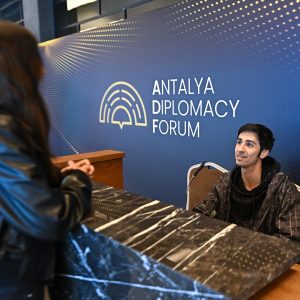Israeli police attack Palestinians to prevent them from prayers at Al-Aqsa Mosque
JERUSALEM (AA) – Israeli police fired sound bombs and tear gas at Palestinians in East Jerusalem to prevent them from reaching Al-Aqsa Mosque to perform Friday prayers.
In a statement, the Palestinian Red Crescent Society (PRCS) said that its crews “dealt with two injuries due to beating by the Israeli police in Bab al-Amoud and Bab al-Asbat in Jerusalem.”
For the 11th Friday in a row since the beginning of the Israeli war on Gaza, the Israeli police imposed severe restrictions that prevented tens of thousands of people from reaching Al-Aqsa Mosque to perform prayers.
Large police forces were deployed at the gates of the Old City and barriers were set up to prevent worshippers from passing. The Israeli police only allowed elderly people to cross to perform prayers.
An official in the Islamic Endowments Department in Jerusalem said that only 12,000 people were able to perform Friday prayers in the mosque, compared to more than 50,000 in the regular congregation before the restrictions were imposed.
Israeli police also attacked dozens of worshipers who gathered to pray in the Wadi al-Joz neighborhood near the Old City.
Eyewitnesses said that the Israeli police fired stun grenades and tear gas at the Palestinians and chased them through the streets, using wastewater.
Eyewitnesses also pointed to police attacks on worshipers in the areas of Bab al-Amoud and Bab al-Sahira, where Palestinians tried to perform prayers in the streets.
Masjid al Aqsa is one of the holiest sites in Islam, being the first Qibla (prayer direction) for Muslims, and the site where the Ascension of Prophet Muhammad Peace Be Upon Him is said to have taken place. Praying at Al Aqsa carries immense religious significance for Muslims.
Israel has pounded the Gaza Strip since October 7, killing at least 20,057 Palestinians, mostly women and children, and injuring 53,320 others, according to health authorities in the enclave.
The Israeli onslaught has left Gaza in ruins with half of the coastal territory’s housing stock damaged or destroyed, and nearly 2 million people displaced within the densely-populated enclave amid severe shortages of food and clean water.











